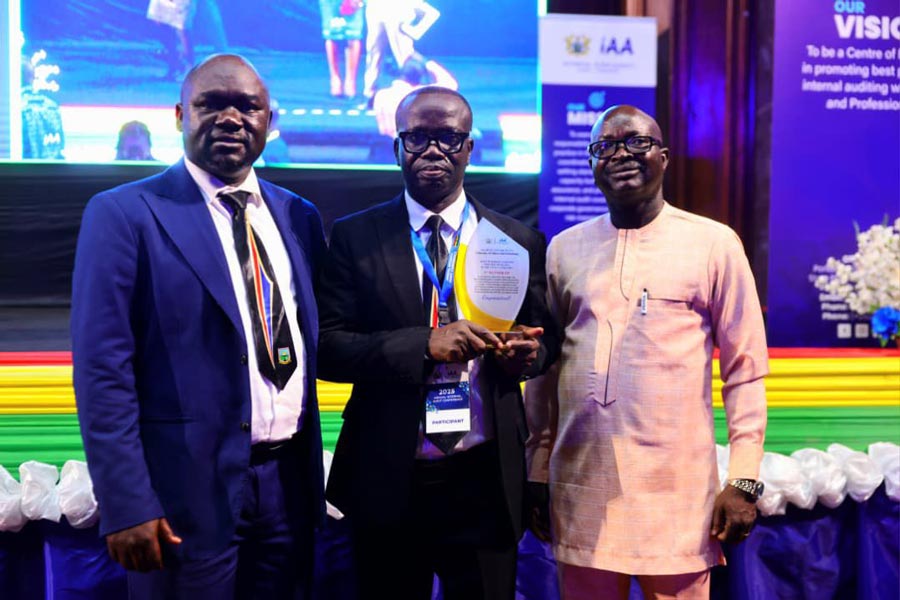Mr Samuel Effah Wins 1st Runner-Up 2024 Best Internal Auditor Award, GTEC Category
Mr Samuel Effah, FCCA, the Internal Auditor of the University of Mines and Technology has been adjudged the First Runner-Up for the 2024 Best Internal Auditor Award in the Ghana Tertiary Education Commission (GTEC) category. The recognition was conferred by the Internal Audit Agency (IAA) at its 2025 Annual Internal Audit Conference held on 4th November 2025 at the Accra International Conference Centre (AICC).
Themed “Resetting the Ghanaian Economy: The Role of the Internal Auditor,” the national conference brought together prominent professionals from public and private financial and governance institutions to deliberate on reforms, digital transition, and strategies for strengthening economic management.
His Excellency John Dramani Mahama, President of the Republic of Ghana, was represented by the Chief of Staff, Hon. Julius Debrah, who served as the Guest of Honour. The Chairperson of the conference was Professor Raymond Akongburo Atuguba.
Delivering the keynote address at the opening session on 3rd November 2025, Hon. Julius Debrah emphasized the vital role of the Internal Audit Agency and its auditors in guiding government decision-making and supporting the administration’s reform agenda.
The President’s Economic Advisor, Honourable Seth Terkper urged internal auditors to uphold transparency and accountability, stressing that public resources belong to the people and must be safeguarded with integrity. He also called for expedited review of the Internal Audit Agency Act to address past financial irregularities.
The Acting Director-General of the IAA, Mr Thomas A. Thompson-Aryee, highlighted professionalism and integrity as non-negotiable standards for internal auditors. He revealed plans for a full digital transformation of the Agency by 2026, transitioning from paper-based to paperless operations. Mr Thompson-Aryee also announced efforts to collaborate with the Ministry of Finance to secure dedicated funding for audit committees to ensure operational independence.
The two-day event featured plenary discussions on public financial management, sessions on staff well-being, and a closing awards ceremony recognising excellence within Ghana’s internal audit profession.

Mr Effah’s recognition celebrates his exceptional contribution to promoting transparency, accountability, and professionalism at UMaT and beyond. As a Fellow of the Association of Chartered Certified Accountants (FCCA) and a member of the Institute of Internal Auditors, he also holds a Post-Chartered Diploma in Forensic Audit from the Institute of Chartered Accountants Ghana (ICAG). He serves on several audit committees, including those of Takoradi Technical University, Sunyani Technical University, and multiple municipal assemblies.
The IAA commended Mr Effah for his diligence, courage, meticulous attention to detail, and production of high-quality audit reports. His achievement reflects the University’s foundational values of Knowledge, Truth, and Excellence and positions UMaT as a leading institution fostering a culture of integrity and sound governance in Ghana’s public sector.











